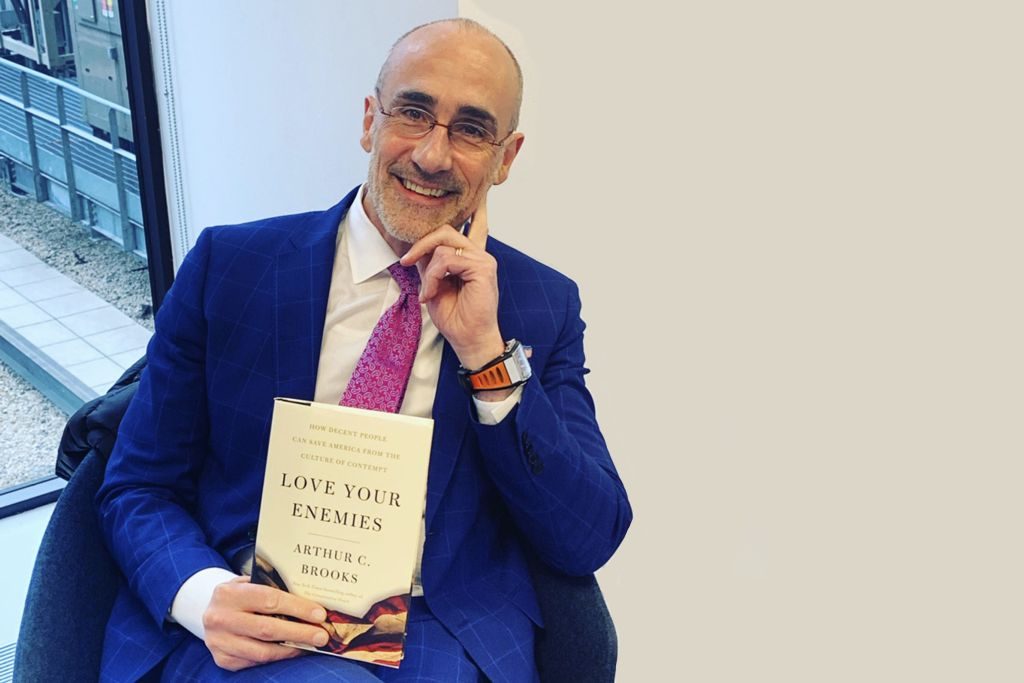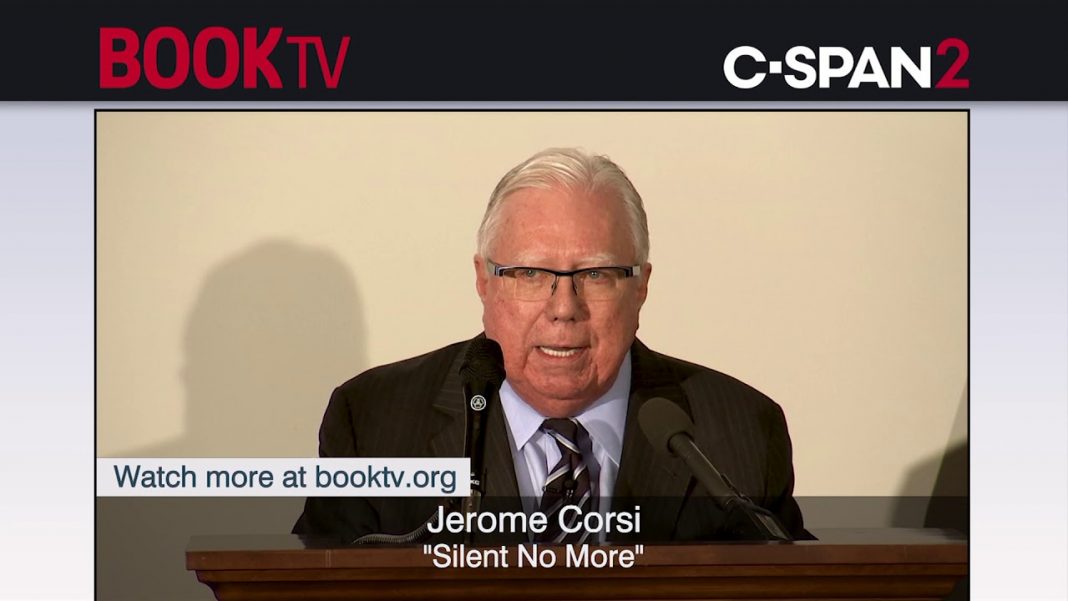To get ahead today, you have to be a jerk, right?
Divisive politicians. Screaming heads on television. Angry campus activists. Twitter trolls. Today in America, there is an “outrage industrial complex” that prospers by setting American against American, creating a “culture of contempt”—the habit of seeing people who disagree with us not as merely incorrect, but as worthless and defective. Maybe, like more than nine out of ten Americans, you dislike it. But hey, either you play along, or you’ll be left behind, right?
Wrong.
In Love Your Enemies, the New York Times bestselling author and social scientist Arthur C. Brooks shows that abuse and outrage are not the right formula for lasting success. Brooks blends cutting-edge behavioral research, ancient wisdom, and a decade of experience of experience leading one of America’s top policy think tanks in a work that offers a better way to lead based on bridging divides and mending relationships.
Brooks’ prescriptions are unconventional. To bring America together, we shouldn’t try to agree more. There is no need for mushy moderation, because disagreement is the secret to excellence. Civility and tolerance shouldn’t be our goals, because they are hopelessly low standards. And our feelings toward our foes are irrelevant; what matters is how we choose to act.
Love Your Enemies offers a clear strategy for victory for a new generation of leaders. It is a rallying cry for people hoping for a new era of American progress. Most of all, it is a roadmap to arrive at the happiness that comes when we choose to love one another, despite our differences.
Review
“Arthur Brooks offers the practical prescription in Love Your Enemies that could lead to a more peaceful, just, sustainable, and healthier world.” (Deepak Chopra, Author, The Healing Self)
“Love Your Enemies is a handbook for a new generation of leaders who want to bring America together—and anyone seeking to be more effective in a fractious political environment.” (Steve Case, Chairman and CEO of Revolution and co-founder of AOL)
“If we won’t listen to each other, maybe we can start by listening to Arthur Brooks. Love Your Enemies offers a heartfelt and patriotic case for how we can put our contempt aside to work together again.” (Simon Sinek, Optimist and New York Times Bestselling Author of Start With Why and Leaders Eat Last)
“In Love Your Enemies, Arthur Brooks reminds us that we can disagree without being disagreeable, and that everyday citizens have the power to bring our country back together.” (David Axelrod, former Senior Advisor to President Barack Obama)
“If you’re satisfied with our toxic ideological climate, then don’t bother reading this book. But if you’d like to rebel against the present nonsense, Arthur Brooks can show us how to do it with joy and confidence — and regardless of your political preferences.” (Ben Sasse, U.S. Senator from Nebraska)
“The signal achievement of Arthur Brooks’ latest book is to demonstrate how the seemingly ‘soft’ virtues of love, friendship, and warm-heartedness are, in point of fact, the very qualities most needed to make real progress in the rough and tumble of the political and cultural conversation.” (Bishop Robert Barron, Founder of Word on Fire Catholic Ministries and Auxiliary Bishop of the Archdiocese of Los Angeles)
“Arthur Brooks is a…former French horn player who decided to be an egghead late in life, he is a unique mix of Catholic piety, data obsession, sartorial connoisseurism, physical fitness, old-soul wisdom, and basic decency.” (Jonah Goldberg, New York Times bestselling author of Suicide of the West)Read more
To get ahead today, you have to be a jerk, right?
Divisive politicians. Hateful pundits. Angry campus activists. Twitter trolls. Today in America there is an “outrage industrial complex” that prospers by setting American against American, creating a “culture of contempt”—the habit of seeing people who disagree with us not as merely incorrect, but as worthless and defective. Maybe, like more than nine out of ten Americans, you dislike it. But, hey, either you play along or you’ll be left behind, right?
Wrong.
In Love Your Enemies, the New York Times bestselling author and social scientist Arthur C. Brooks shows that abuse and outrage are not the right formula for lasting success. Brooks blends cutting-edge behavioral research, ancient wisdom, and a decade of experience leading one of America’s top policy think tanks in a work that offers a better way to lead based on bridging divides and mending relationships.
Brooks’s prescriptions are unconventional. To bring America together, we shouldn’t try to agree more. There is no need for mushy moderation, because disagreement is the secret to excellence. Civility and tolerance shouldn’t be our goals, because they are hopelessly low standards. And our feelings toward our foes are irrelevant; what matters is how we choose to act.
Love Your Enemies offers a clear strategy for victory for a new generation of leaders. It is a rallying cry for people hungry for a new era of American progress. Most of all, it is a road map to find the happiness that comes when we choose to love one another, despite our differences.

About the Author
Arthur Brooks is president of the American Enterprise Institute, where he also holds the Beth and Ravenel Curry Chair in Free Enterprise. He is the author of eleven books, including the bestsellers The Conservative Heart and The Road to Freedom. He is an op-ed columnist for The Washington Post, and host of the podcast The Arthur Brooks Show. Previously, he spent twelve years as a professional classical musician in the United States and Spain, including several seasons as a member of the City Orchestra of Barcelona. A native of Seattle, Brooks lives with his family in Bethesda, Maryland. In the fall of 2019, he will join the faculty of the Harvard Kennedy School and Harvard Business School.







